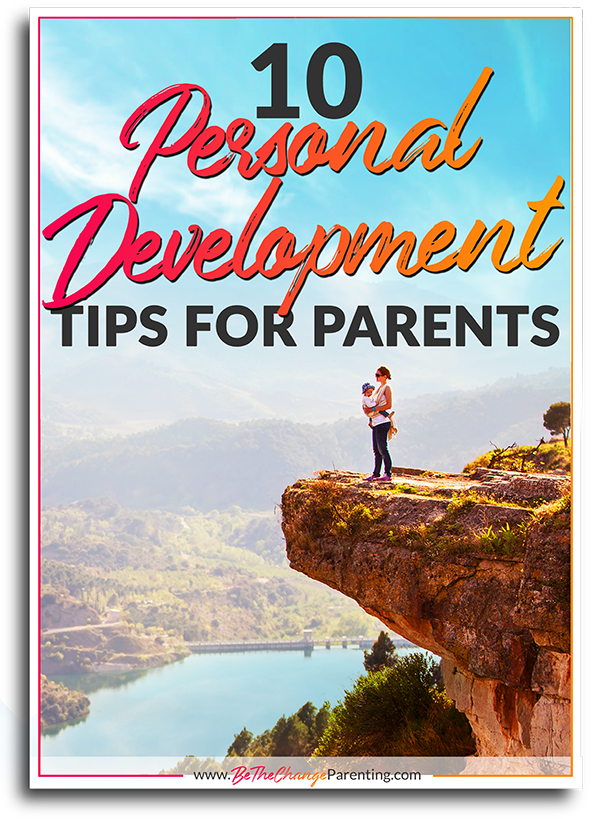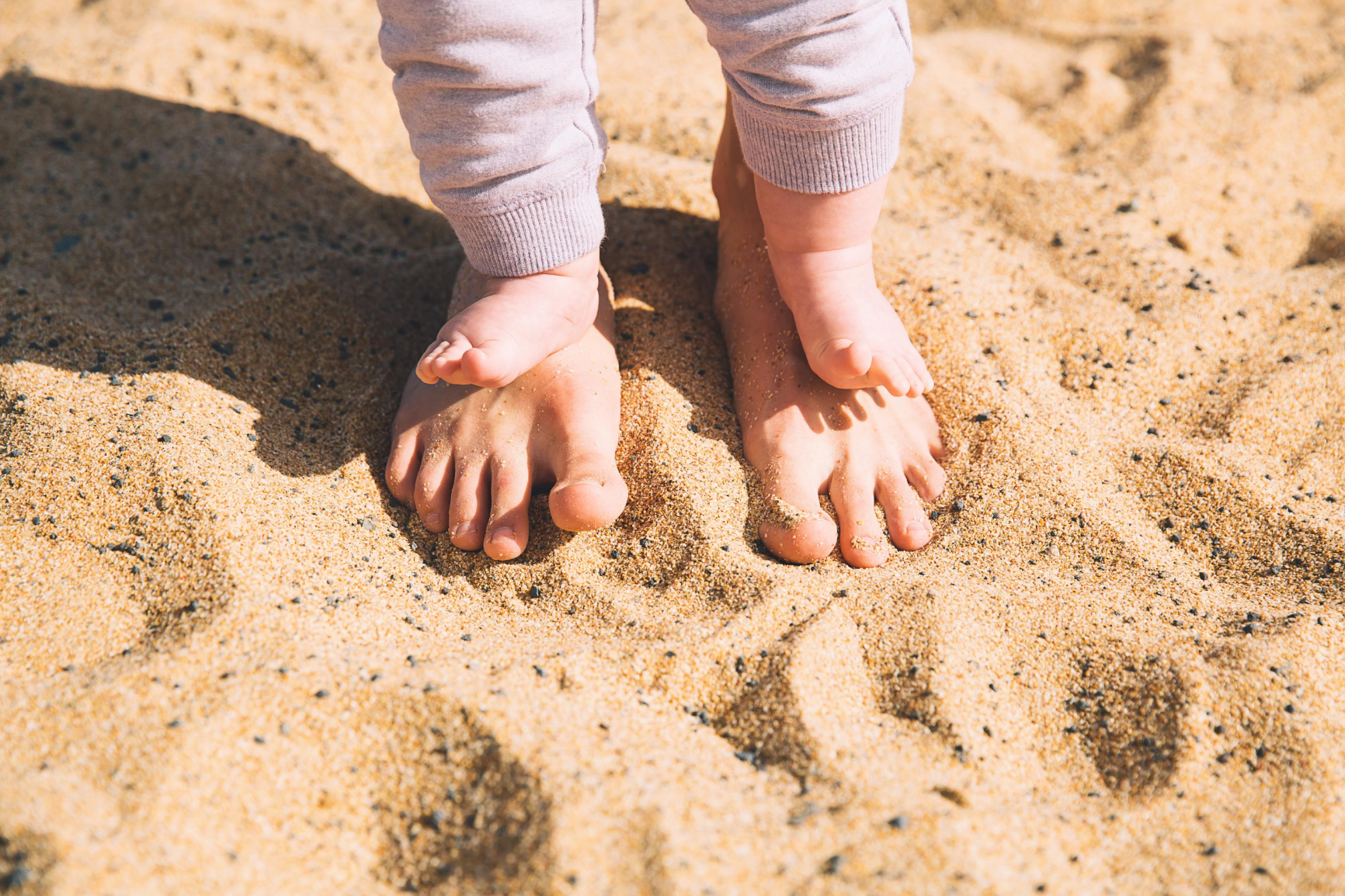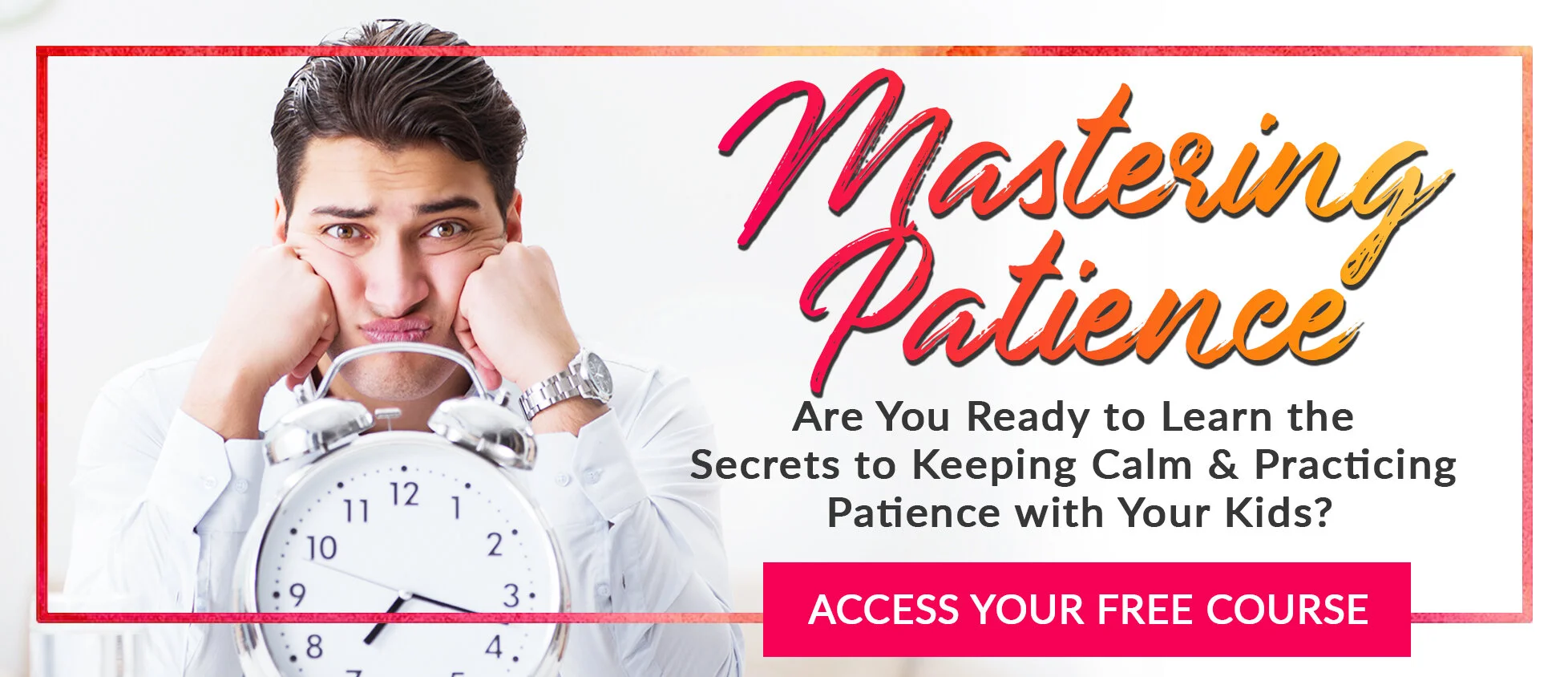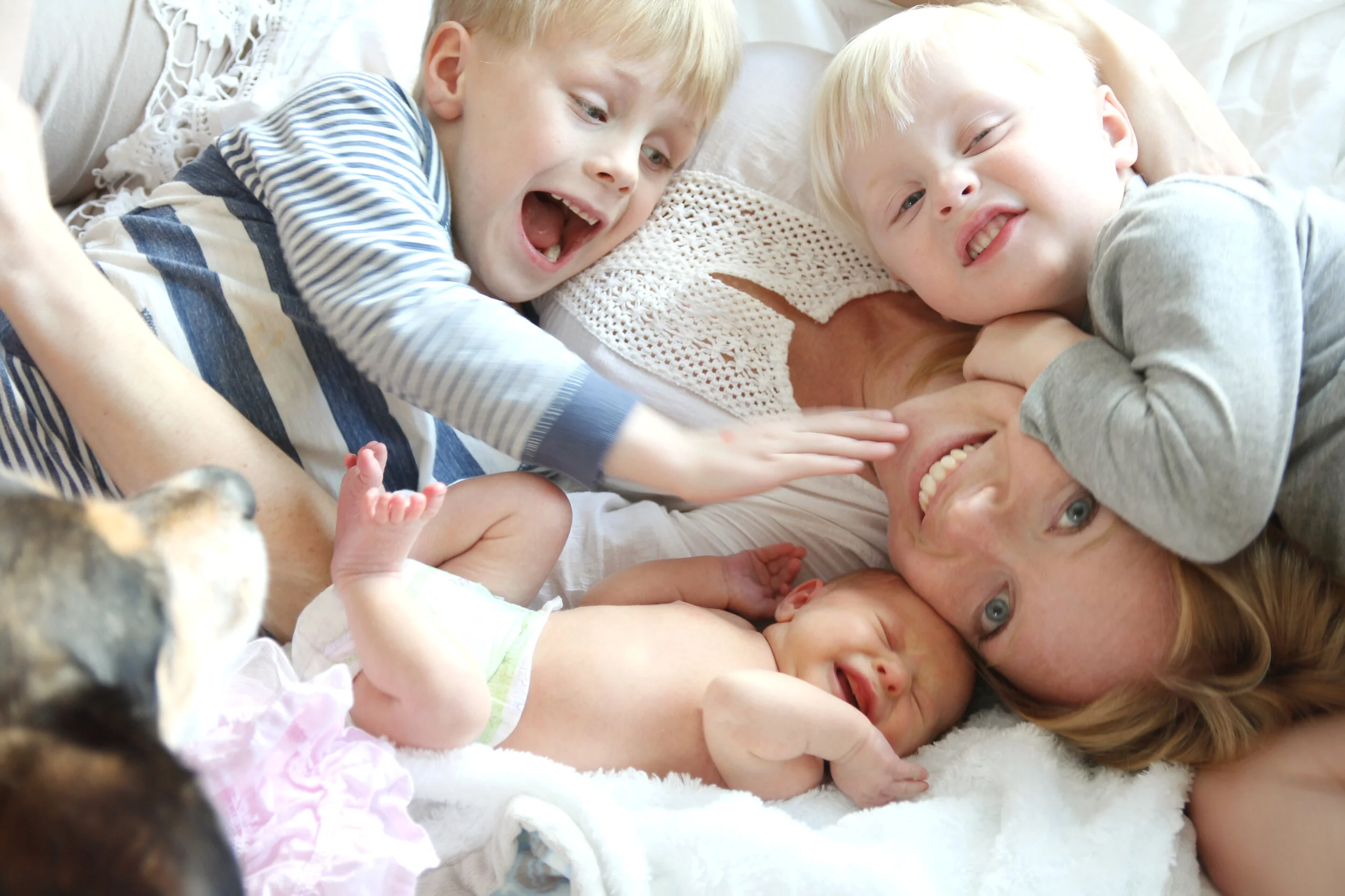
Mastering Patience
Are You Ready to Learn the Secrets to Keeping Calm & Practicing Patience with Your Kids?
Personal Development for Parents
To put it quite simply, the best personal development program you will ever encounter in your entire life, is becoming a parent! A Ph.D. in human achievement.
Know how to develop your character? By stretching yourself. Just like when you want to grow muscles, you work those muscles over and over again, and exert yourself – eventually your muscles grow and grow.
Same thing when you want to strengthen your best character traits. Want to become a more patient person? You need to work those patience muscles over and over again (not too hard to do when you become a parent. LOL). You want to put yourself out there and do for others, even when it’s inconvenient?
You got it - grow those muscles.
Building patience
What is parenting if not a huge gym with loads of exercises for us to develop patience muscles, and muscles of kindness and thoughtfulness and empathy, and so much more that we never really stopped to think about before.
Yes, like I said, parenting is literally a full-out personal development program, and you do it all at your own pace. Which means don’t forget that’s it’s fun and brings you some of the greatest joys in your life.
The fun part? You will spend endless sleepless nights taking care of these little darlings’ needs, changing their diapers, feeding them, holding and comforting them when they cry, and just when you think they have grown out of that stage, they develop more mature demands and a brand new attitude which is at odds with what you intended – as if that’s not enough to convince you that your personal development could use some updates, wait till they start walking around copying everything you do and say!
That’s about the time when serious guilt starts to kick in.
“Oh my gosh, what kind of an example am I being for my child? Is he going to turn out bad because I’m such a bad role model?” “What did I do wrong?”
Yep, like I said, guilt.
That’s when you start to google how to become a better role model. How to have more patience. Personal development programs SOS.
I get it. Trust me I get.
I’ve got 8 kids of my own and over the years I can’t begin to tell you how many times I’ve had one of those aha moments when I realize that my kid’s behavior is literally a carbon copy of what I do…
That’s why I came to the realization that if I want to inspire my kids to become the greatest possible versions of themselves, I need to be the greatest possible role model for them. Not so they will be a carbon copy of me, but so they will see the steps they need to take to develop themselves into their best selves now at this stage, and yes, as a parent later. Remember, children learn much more by watching what you do than by listening to what you say.
“How many times have I had one of those aha moments when I realize that my kid’s behavior is literally a carbon copy of what I do…”
Here then are the top character traits that I try to work on consistently. They help better me with my parenting, and they’re good modelling for traits that my kids need to develop for life.
☞ If you like this post, you will love: Positive Discipline: How to Get Mind Blowing Results
Character Traits that Every Parent Should Develop
1. Patience
I sent out a poll to thousands of parents to ask them what they think the 6 most important character traits you need to excel at when it comes to raising kids. Can you guess which trait nearly 100% of them chose?
You got it – PATIENCE!
A Lack of Patience is one of the root causes of Anger. Just not being able to wait. How to develop patience is one of the most challenging things in parenting because not only do kids take so long to do everything – I mean have you ever watched a toddler dress himself? They need to do everything themselves.
Ever heard a toddler scream: “MYSELF!!!”
Kids have a lot of underdeveloped traits. A lot of things that drive you crazy! They will push your buttons…
Patience is not the ability to just wait. But the ability to keep a good attitude while waiting.
Patience. That’s the challenge. You want to guide, empathize, motivate, nurture, love your kids at every stage all the while being patient for them to mature, to grow up, to learn while making mistakes.
How to develop Patience?
Well to begin with…
The thing that often makes us the most impatient is a nagging thought:
“I’m wasting my time.”
“I could be doing something else more important right now.”
If you could somehow change those thoughts to:
“I’m developing my patience muscles right now.”
“This is the most important thing I could be doing now, for both of us.”
Then you won’t feel the impatience building up inside of you.
I’ve learned a lot of amazing tips to develop patience over the years, and what I’ve done for you is condense all lot of the core points into a short mini-series for you. I wanted to share there life changing concepts with you so you can be that much more patient with your own family! Feel free to join me for a set of 3 free parenting classes: Mastering Patience.
2. Selfless, Kind, Giving
Until kids came along the one person I needed to take care of was me! Yes of course I did things for my parents, grandparents and friends. And then when my husband came along then for him too. But it was on my terms. And when I needed a break or needed to prioritize something else then I did so.
Definitely not the case when it comes to parenting. I have had to stretch myself beyond any limits I ever thought I could, like taking care of sick kids when I myself was so sick I could hardly move, or taking care of a newborn baby when my toddler was keeping me up all night teething. Or the time my toddler managed to escape the house and ran away to the park and I had to go running after him with my baby in tow while on crutches with my broken foot!
Even on a daily basis to move through our daily routines with a kind word, a giving smile and exuding the love that a parent should have so their child feels loved and cared for in a deep sense.
I’m sure you also have many times that you felt that you’ve stretched beyond your limits - to a somewhat superhuman ability. That is being selfless. Giving to your child as a priority in your life, sometimes even to a greater priority than yourself.
In many ways giving and being kind to our kids comes naturally. But in many ways it’s something that we need to work on to become the best possible parents we can be for our kids and the best role models for them. Who doesn’t want to raise selfless, kind and giving kids?
☞ If you like this post, you will love: Mom Burnout to Glorious Triumphant Vitality: A How To
3. Self-Control & Compassion when Offended
This is a huge sign of maturity. To be able to be wronged, and to not do wrong back. To have compassion when someone hurts you. To have the maturity to see that there is pain behind someone else’s wrongdoing, or sometimes just immaturity or lack of awareness.
There are a lot of people who can’t show emotional appreciation (especially kids & teens) – you need to be able to still give to them even when they are not reflecting back ‘thanks’ – especially when it comes to parenting.
Self-control and compassion are also at the root of being able to be quiet sometimes. To not tell your child off, ‘I told you so’, ‘you could have, should have’. To not say something hurtful, but just catch your tongue. The more you develop having self-control and compassion in place of a knee jerk reaction to say whatever’s on your mind, the easier it will be to just catch your tongue until you’ve thought it out. In this blog post here I begin with a story of a time that I had a very hard time not saying ‘I told you so’ to my son while his knees were bleeding down his legs…
Having Compassion is not condescending. ‘Oh I feel bad for you, you have no self-control, but I do because I’m better than you.’ No. It comes from a feeling of responsibility, yet also a humble place.
Mindset is going to be a hard one here. A lot of us have a deep-rooted knee jerk reaction that when someone hurts us, we hurt back. “They deserve it. They don’t deserve compassion after what they’ve done.” But this is your dearly loved child you are speaking of here. What are you teaching him?
“Having Compassion is not condescending. ‘Oh I feel bad for you, you have no self-control, but I do because I’m better than you.’ No. It comes from a feeling of caring and responsibility, yet also a humble place.”
Justin Gammill summarizes the importance emotional maturity perfectly in his article 7 Distinct Signs of Emotional Maturity, ‘Emotional Maturity is one of the key things we achieve in our lives that affects who we are and how we react to other people. Knowing your emotions and balancing them are the two main aspects of dealing with our emotions effectively.’
How true this is in life, and how much more so in parenting. Cuz it’s not just who we are that we’re defining… it’s who our kids are going to copy.
☞ If you like this post, you will love: How to Be More Confident in Your Parenting
4. Assertiveness
Many people have never learned how to state clearly what they need without any emotional build up or charge. To be able to simply state what they need, state what’s not okay, or state a boundary, without getting emotional, upset or angry.
What often happens is you experience someone doing something you don’t like, and then you say to yourself (or a friend) “that’s annoying, they shouldn’t be doing that!”
But then you don’t say anything. And the offender keeps offending again and again and you just keep holding it inside, either quietly stewing, or speaking badly about the other person behind their back. Then after it builds up and builds up - all of a sudden you explode! It all comes flowing out and you scream at them and totally lose your cool.
Sometimes the other person is totally stunned. They had no idea that they were even bothering you. You find this a lot with husbands who are totally stunned at their wives’ explosions, and it turns out that the wife really felt that her husband should ‘know better’ and be able to read her feelings. Works the other way too.
Same thing with your kids. Picture your son doing something that’s really bothering you and you’re trying to just ignore him and let him have his ‘fun’, or your kids are fighting and you figure they’ll just work it out (or maybe you just don’t want to deal with it - trust me I’ve been there) but then finally something just passes the limit inside of you and then you explode. Ever happened to you before?
Really what you need here is a good dose of Assertiveness.
The dictionary defines Assertive as: bold or confident statements and behavior.
To be able to just state your needs in a confident way.
With raising kids there’s two aspects to this:
Being able to set clear boundaries, not letting your kids walk all over you, not waiting until their behavior is so bad and aggravating that you explode.
Being consistent, that when they push those boundaries, to be able to hold them in place. Your child may know well that such a behavior bothers you - you might have told them 10 times before, but they keep testing the limits. You need to be consistent. Don’t let those boundaries get moved, and be bold and confident when you hold up your boundaries.
This is being assertive. This is something I cover in greater detail in my free course Better Listening, More Cooperation where I cover many different tools for getting your kids to listen to you, being assertive one of the many topics that I cover.
5. Equilibrium
An equilibrium is the ability to be even keeled and not get knocked over emotionally every time someone says or does something you don’t like. It also means not getting overly excited when someone does or says something that you do like. It’s basically being comfortable and mild tempered no matter what other people say or do.
Now wouldn’t that be the most incredible trait to posses as a parent?
No matter what your kids to today…
No matter what they say to each other or to you….
You are just cool as a cucumber. Totally calm, like you’re at the spa getting a massage…
Right, well back to reality.
But seriously, this is a very high standard for anyone, but it is achievable. And you don’t have to be a monk who lives up in the mountains in solitude to achieve this.
Having equilibrium is the dream of anyone who lives with anger management issues, but really any parent deals with the ups and downs of the daily stunts that kids play.
Working on developing a healthy equilibrium will not only create a much more balanced life for you yourself - but it’s an incredible trait to pass down to your kids. It will bring them very far in life.
☞ If you like this post, you will love: How I Do It All: House, Meals, Work, Kids & Me Time
6. Positive Outlook
You and I both know that kids do crazy things. They make messes, get into fights, do risky things and might embarrass you in front of the neighbors… a lot!
Where would I be without a positive outlook? Without my rose tinted glasses to paint life with the glass half full attitude?
I can’t begin to tell you how many times my kids have done crazy things or made insane messes and my knee jerk reaction was to run for the camera. Why? Cuz there’s a part of this that is slightly funny, and it will make for a great story in a few years from now.
Why not see the good?
And I’m not just talking about the time my 3-year-old cracked all 12 eggs from the box of eggs and ended up slipping and having all the eggs fall on her head (true story and yes I ran for the camera!)
What about the times when my son has made this huge effort to make mommy a smoothie but then kitchen (and the floor!!!) is a disaster because of it?
I need to be able to see the good and compliment him - appreciate his good heart and intentions, which I can’t do if I only see the mess that he’s made (trust me it’s challenging).
The key is to have a positive outlook, a good eye, for seeing the good in every situation and in every person.
To be able to say:
”Wow! You’re so creative!”
“How thoughtful of you!”
Instead of concentrating on the messes they make and all the clean up work involved.
The more you can see the good in every situation and in every person, the more your child will be able to do the same. People are not generally born complainers. They learn to be.
But they can also learn to appreciate and to see the good.
7. Leadership
Often parents feel unsure of themselves so they’re not assertive because they’re not confident. A child throws a temper tantrum. What do I do? How do I react. If you’re not sure then how can you be confident?
COMPETENCE BREEDS CONFIDENCE
If you feel competent in whatever you’re doing, then you’re naturally going to be more confident.
“So how do I feel more confident in my parenting. Raising kids is a huge responsibility. How do I know I’m doing it right?”
Number one is learn skills. That’s what we are doing right now. That’s what all my classes are about. I truly believe that you should always be learning and growing and developing more skills as a parent and as a person. Looking to learn new skills? Take our FREE Parenting Classes!
Number two is to get in touch with your inner voice, and to develop the strength to believe in that inner voice and to stay true to that voice.
When you start to have more self-confidence in your parenting then you’ll be able to be more assertive - to set proper boundaries in a kind and clear way.
☞ If you like this post, you will love: How to Raise Problem Solvers Using the Power of Magic Words
8. Flexibility
If you’ve got a challenging child, a strong willed child or a kid with ADHD then you know what I mean about needing to be flexible. As much as it’s important to be able to set boundaries for our kids and not let them push those boundaries over, it’s also super important to be flexible.
You wanted to go out shopping but now you see that your six-year-old is a bit tired. If you end up going he’s going to end up having a tantrum in the middle of the store. I guess it’s time to be flexible and change your plans.
You made a curfew for your 13-year-old but now there’s a party that all her friends are going to and she’s going crazy that she doesn’t want to be left out. Time to be flexible?
What about when it comes to doing chores, but your son’s got a huge mid-term tomorrow? Or simply when your interests conflict with your child’s?
I was recently only our summer vacation my kids and I had a bunch of outings planned but then they all just wanted to sit at the beach all day.
Flexibility is one trait that I’m not sure how I could manage parenting (especially 8 kids!!!) without. I happen to be lucky when it comes to this one since I’m naturally more easy going and flexible, but it’s still something that I have to work on - especially when I have my heart set on something, like during our family vacation.
I’m not saying that you should always give in to your kids - certainly NOT! But I am saying that being locked into your ways and into your way of doing things is a recipe for some real head-knocking conflict with your kids. Especially when they become teens.
9. Acceptance & Tolerance
Life doesn’t always go the way you want it to. Agreed? And your kids aren’t always going to behave the way you want them to. We can definitely agree on that! Question is - how do you react when things don’t go your way? With people that you don’t see eye to eye with?
Can you accept them for who they are? Can you tolerate their presence?
Our kids can do some pretty wild things, and not only that sometimes you have some kids whose personality you like more than your other kids.
The key is to make every child feel loved and accepted for who they are - and with that comes the need for acceptance and tolerance.
That doesn’t mean that you accept bad behavior - it means that you love them unconditionally no matter what behavior - and then together you work on improving their behavior.
This also goes for the world around you. The more you can accept the imperfections of the people around you and tolerate behaviors that are less than admirable, the more your children will learn to do the same. And trust me I get it… the lady on the customer service line who is driving you crazy? I’ve been there! But guess who’s little ears are listening to your conversation?
☞ If you like this post, you will love: How to Discipline a Child with ADHD and ODD
10. Humility
Being a parent is one of the most humbling experiences a person can ever go through. Period.
You realize that you don’t have all the answers; that getting a baby to sleep when you want them to is something close to impossible, that a little two-year-old can completely control you, and that you can’t control your schedule, your home or even your moods!
I think I would have found the answers I needed to hear for my parenting battles much faster when I was a younger parent if I would have had the humility to admit that I didn’t have all the answers and that I need to take some parenting classes.
I think that as the years have passed and the more my kids have grown up the more and more I can admit that I don’t really know. Every child is such an individual. Every situation is so different.
Having a humble attitude towards parenting and towards life in general can change so much in our daily struggles. Cuz, at the end of the day… I really don’t know all the answers and in my ways my children have been my greatest teachers.
So much more to learn
These are just a few examples of traits that every parent should develop. But there are so so many more. Sounds overwhelming, I know, but our job isn’t to be perfect today. It’s to be consistently growing every day to be just a little bit better than yesterday, to have just a little bit more patience, to be a little more accepting of others. And the sum total of little bits of growth over many years is huge.
☞ If you like this post, you will love: How to Motivate Kids to Do Their Chores
The Parenting Balancing Act
Every trait has a good part to it and a downside to it. Especially in parenting you’re going to find that you need to constantly be weighing and balancing out every character trait.
Patience – Need to be patient with our kids, they might take time doing things or keep us waiting, but we can’t teach them that it’s ok to always be keeping us waiting.
Selfless, Kind, Giving – We want to be giving to our children without needing them to reciprocate, but we also need to teach them to be responsible, and to do for themselves and for others.
Self-control and compassion – we need to have self-control and have compassion even when we are wronged, but we can’t teach our kids that it’s ok to wrong us. We need to teach them that it’s not ok, so change is expected.
Assertive – we need to be assertive but also not come across too strong. We need to be careful with others’ feelings and also show kindness and compassion, and know when to just keep quiet and let it go.
Equilibrium – We need to have an even keel and not get knocked over emotionally every time someone says or does something we don’t like, but we also don’t want to feel indifferent or make it look to our kids like we don’t care. They watch our reactions closely to know what’s right and what’s wrong.
Positive Outlook – We need to see things with rose-tinted glasses, see the good, be happy, but we also need to notice when something isn’t right and needs fixing, and also still acknowledge our feelings of pain, hurt and sadness.
This is why we need to keep our finger on the pulse. Use your inner wisdom and intuition to decide when and where to apply each trait. Awakening your intuition is a very important part of personal development and parenting, something I work on every day.
☞ If you like this post, you will love this video: How to Awaken Your Intuition
Benefits of Personal Development for Parents
Your relationships will improve both with yourself and with others. As Isabella testifies in her post 26 Benefits of Personal Development, ‘Personal development is about improving the relationship with yourself. It at least normally starts there. When you improve the relationship with yourself, people are naturally drawn to you, and your relationships you already have with others also improves.’
I’m not saying it will be easy! Parenting will be one of the most challenging assignments that you will ever have in your life. Right from the start: the pregnancy, the labor, newborns, terrible twos, right on up through teens. The lack of sleep, lack of privacy and time to yourself, constant demands and needs for attention, physical care and the emotional neediness. You name it.
And the biggest pressure that lays most on our heads is the question:
Am I a good role model? What kind of example am I setting? Will my children learn the right things from me?
I guarantee that no matter what you do, you’ll never be perfect. You’ll always have some flaws. So do all of us, no secret there. But when your children see that you are growing, learning, working on yourself, that’s what they’re going to learn to do, too.
Take it slowly, but surely. Don’t give up, but also don’t beat yourself up when you fall here and there. Just get right back up on the horse and keep going.
“Your kids will learn to work on their own personal growth throughout their lives – because they’ve learned it from you.”
Growth takes time and just like your kids won’t grow up overnight, you won’t become the perfect role model and parent overnight either.
Parenting is not only one of the most difficult things you’ll ever go through in life, it’s also the most rewarding. Incredibly rewarding! To see your children grow up and mature over the years is nothing short of magical. But the truth is, what’s also incredibly rewarding is to watch yourself grow up and mature over the years while you are busy raising them. It’s truly the miracle of making yourself into a parent – whom you can be proud of being.
Having children matures us.
One day your child might grow up to realize that he doesn’t like everything about himself. Perhaps his anger, laziness, or sneakiness.
When that happens what will he have learned from you?
That its ok no to love everything about yourself. So long as you are working on improving and becoming a better person every day of your life.
And that’s the greatest benefit of personal development for parents – the fact that your kids will learn to work on their own personal growth throughout their lives – because they’ve learned it from you. So give yourself a pat on the back and love yourself.



























